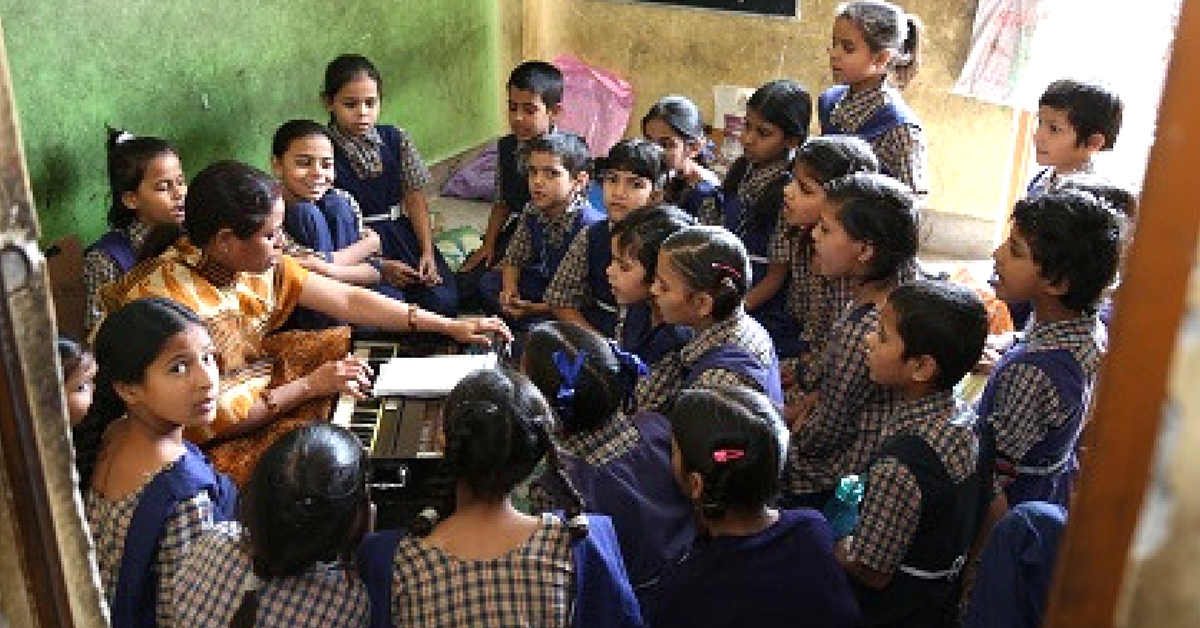For 11 Years, This School Has Shown Muslim Girls the ‘Rasta’ to Education
The credit for Rasta’s existence goes to a group of socially conscious individuals who were disturbed at the sight of children rummaging in garbage heaps

Khora is an unauthorised underdeveloped Colony in Ghaziabad, Uttar Pradesh, which has often been in the news for its neglected state of affairs.
It accommodates a population of 1.2 million, who are largely Muslim and from economically deprived backgrounds, and is spread across only 12 square kilometres. Residents of the colony have to often walk through knee-deep sewage water and live around piles of garbage left around them for years.
With such a sorry state of affairs, education naturally took a backseat. For girls especially, as it was frowned upon by the Muslim community. They were only sent to the nearby Madrasas, and some couldn’t even afford uniforms.
Things changed in 2007 when ‘Rasta’ opened up in the area.

In their own words, the credit for Rasta’s existence goes to a group of socially conscious individuals who were disturbed at the sight of children rummaging in garbage heaps or standing at traffic intersections with begging bowls when they should have been in school. That’s how Rasta was born.
Their field workers would go door-to-door, coax girls and their parents to attend their Non-Formal Education classes. Slowly, things started looking up. While initially the school had only 40 girls attending classes, the number increased to 300 in three months. Today, it’s educating 510 girls, 80% of whom are from Muslim families. They hold classes from pre-school to class 10. Their first batch of 15 girls cleared class 10 in 2013-14.
“A friend asked me, as a challenge, whether I could teach Muslim girls – and I said yes,” K.C. Pant, 58, founder of the school, told Edex Live. He spoke about how it was difficult for them in the early days to convince religious leaders in madrassas and mosques to send the girls to school.
However, now things have changed.

“Two years back, a girl delayed her marriage as she wanted to study more. For a Muslim girl from a poor background, it is a big achievement,” Vinita Singh, the school’s principal, told the publication.
When they started, the school fees was only Rs 40 a month, and they would provide books and uniform for free. Now it has increased to Rs 300. Apart from classes, Rasta also organises a lot of campaigns and projects around health, women empowerment etc. and also offers vocational training for girls.
Like this story? Or have something to share?
Write to us: [email protected]
Connect with us on Facebook and Twitter.
NEW: Click here to get positive news on WhatsApp!
If you found our stories insightful, informative, or even just enjoyable, we invite you to consider making a voluntary payment to support the work we do at The Better India. Your contribution helps us continue producing quality content that educates, inspires, and drives positive change.
Choose one of the payment options below for your contribution-
By paying for the stories you value, you directly contribute to sustaining our efforts focused on making a difference in the world. Together, let’s ensure that impactful stories continue to be told and shared, enriching lives and communities alike.
Thank you for your support. Here are some frequently asked questions you might find helpful to know why you are contributing?


This story made me
-
97
-
121
-
89
-
167











